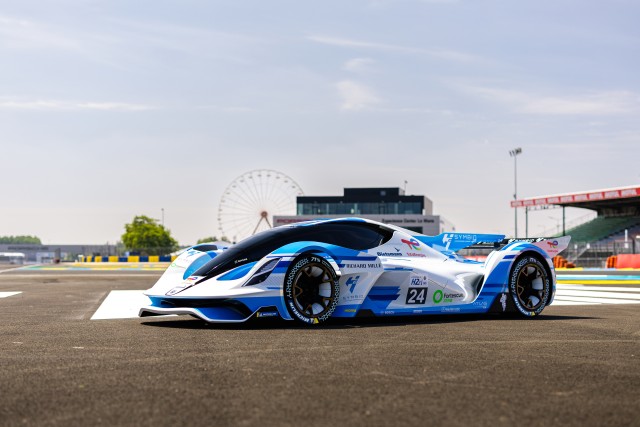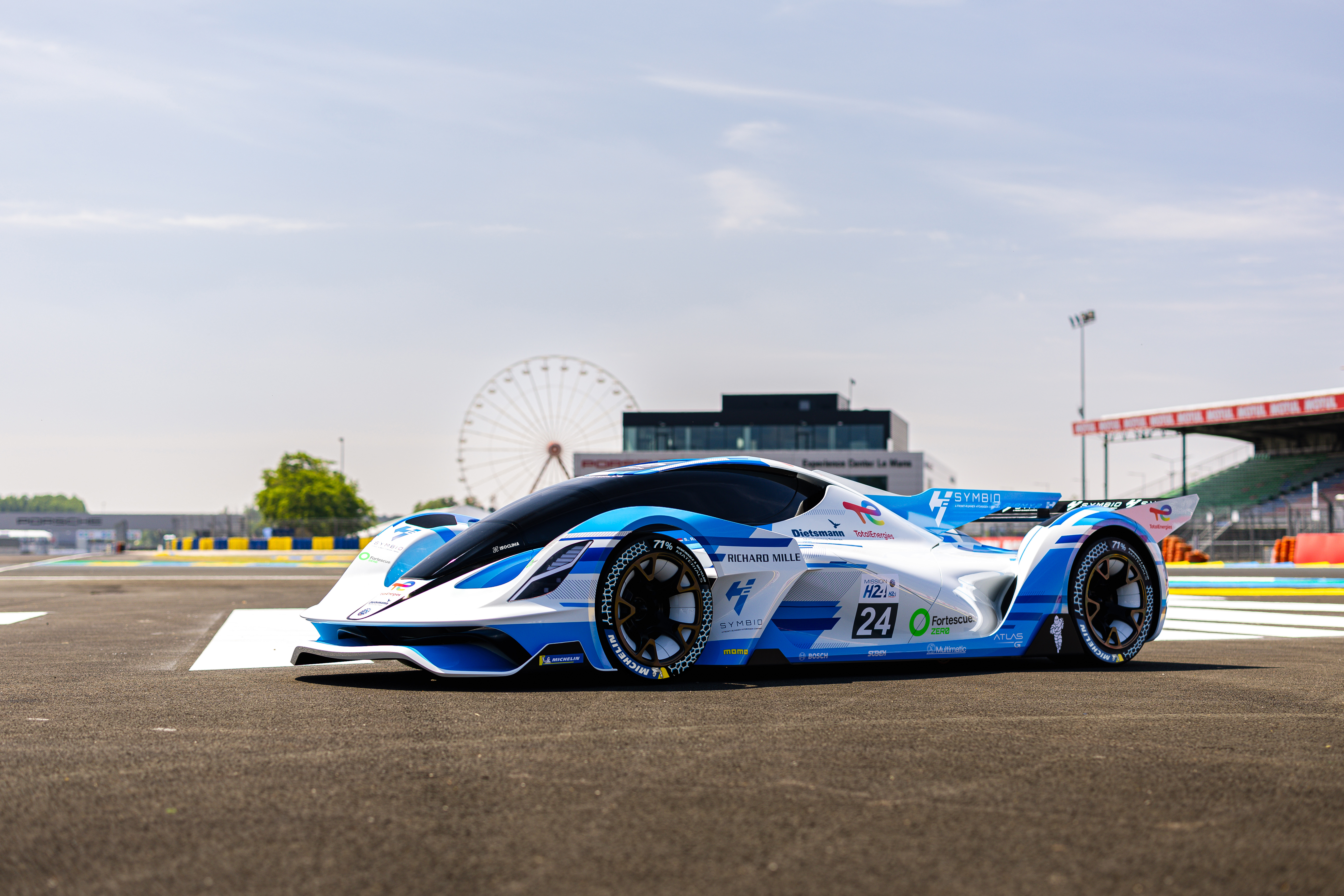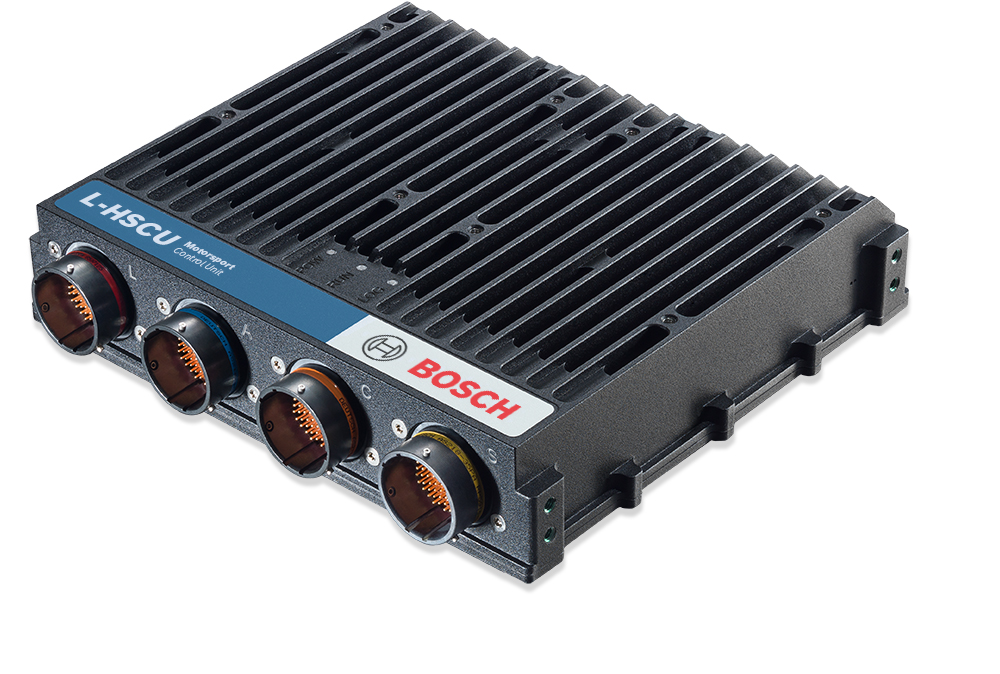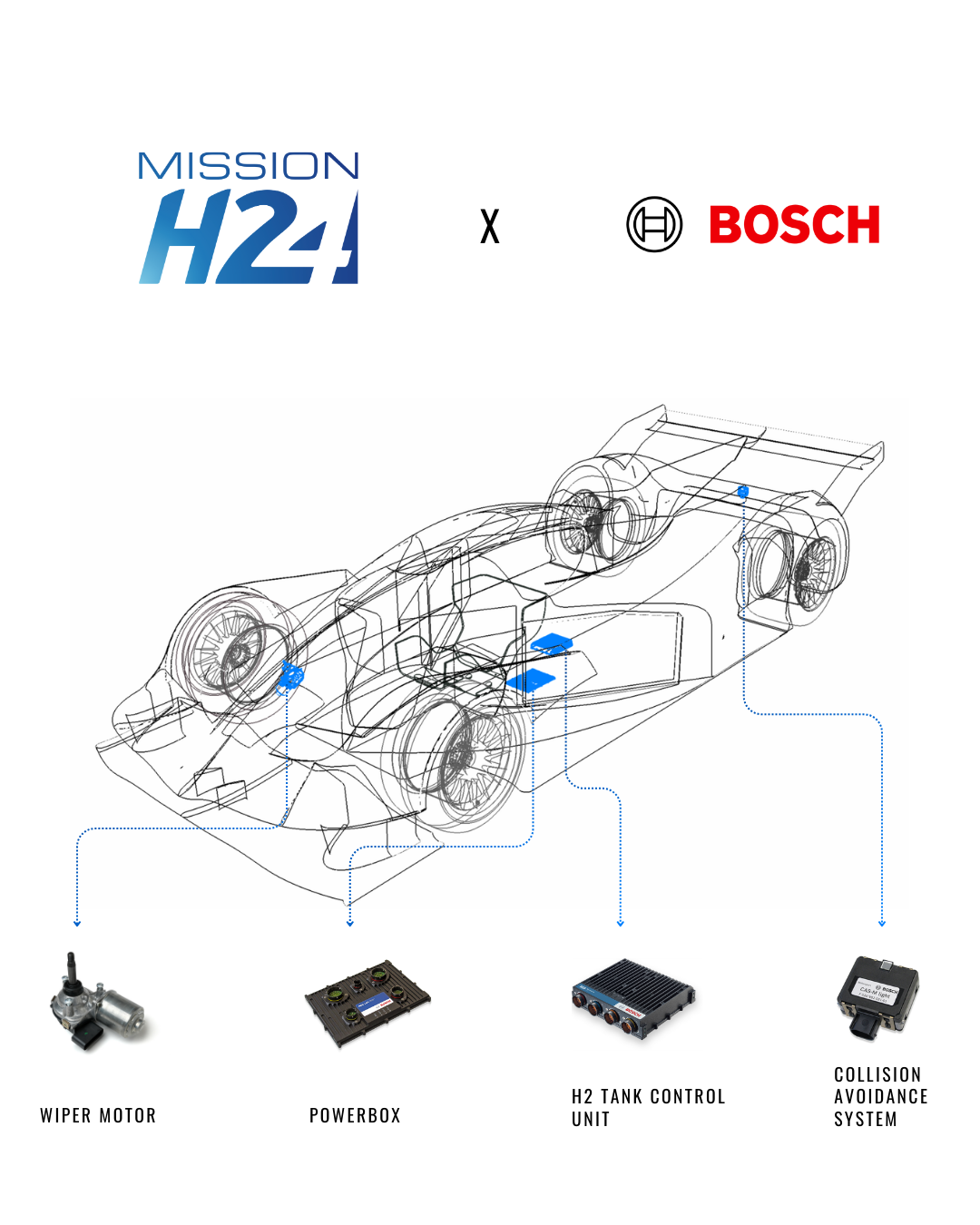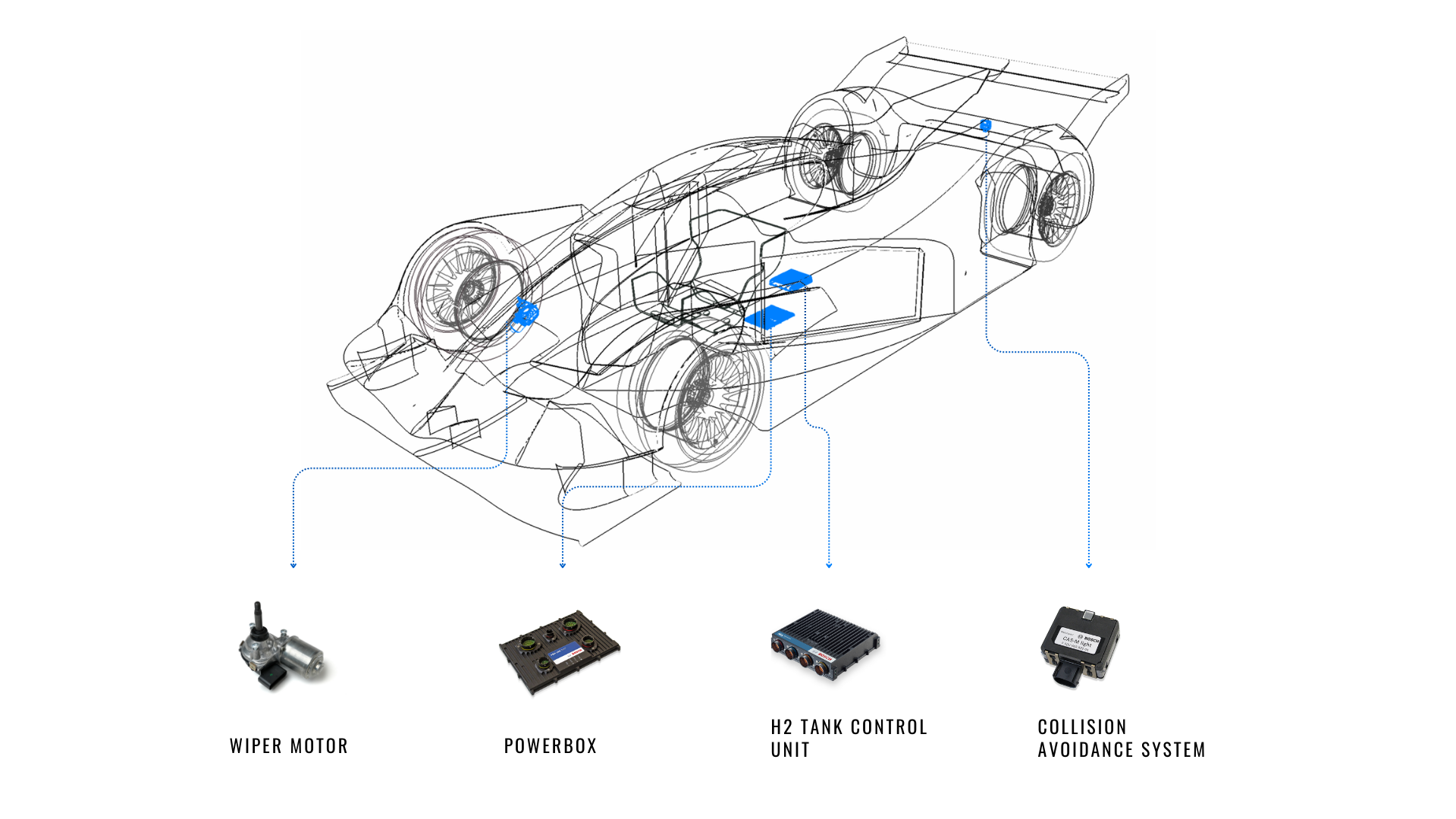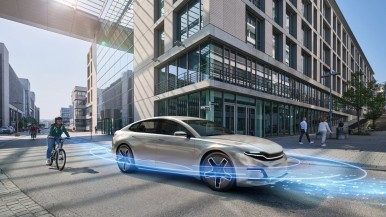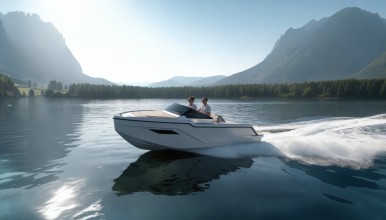Abstatt – The world of motorsport is changing: environmental awareness is growing among active motorsport athletes and fans the world over, while emissions and climate protection are becoming increasingly important in vehicle engineering. Bosch Motorsport is actively driving this transformation with concepts that enable the use of hydrogen in motorsport. "Our pioneering solutions help to make motorsport powertrains more climate-friendly and further reduce the carbon footprint of racing events," states Ingo Mauel, vice president of Bosch Motorsport. Bosch Motorsport's hydrogen portfolio encompasses developments for high-performance hydrogen engines as well as systems for storing the fuel safely and efficiently in vehicles.
Mobility is the largest Bosch Group business sector. It generated sales of 55.8 billion euros in 2024, and thus contributed around 62 percent of total sales. This makes the Bosch Group one of the leading mobility suppliers. Bosch Mobility pursues a vision of mobility that is safe, sustainable, and exciting. For its customers, the outcome is integrated mobility solutions. The business sector’s main areas of activity are electrification, software and services, semiconductors and sensors, vehicle computers, advanced driver assistance systems, systems for vehicle dynamics control, repair-shop concepts, as well as technology and services for the automotive aftermarket and fleets. Bosch is synonymous with important automotive innovations, such as electronic engine management, the ESP anti-skid system, and common-rail diesel technology.
About Bosch Engineering GmbH
Bosch Engineering GmbH is a wholly owned subsidiary of Robert Bosch GmbH and is head-quartered in Abstatt, Germany. As a systems development partner to the automotive industry since 1999, the company with its more than 3,200 associates offers development services for powertrains, safety and convenience systems, and electrical and electronic systems – from the original concept to series production. Specialized in electronics and software, it draws on Bosch’s proven large-scale series production technology to develop tailored solutions for a wide variety of applications in passenger cars, commercial vehicles, off-highway and recreational vehicles, and in rail applications, ships, and industry. Bosch Engineering GmbH also coordinates all the Bosch Group’s motorsports activities.
Additional information can be accessed at www.bosch-engineering.com.
The Bosch Group is a leading global supplier of technology and services. It employs roughly 412,000 associates worldwide (as of December 31, 2025). According to preliminary figures, the company generated sales of 91 billion euros in 2025. Its operations are divided into four business sectors: Mobility, Industrial Technology, Consumer Goods, and Energy and Building Technology. With its business activities, the company aims to use technology to help shape universal trends such as automation, electrification, digitalization, connectivity, and an orientation to sustainability. In this context, Bosch’s broad diversification across regions and industries strengthens its innovativeness and robustness. Bosch uses its proven expertise in sensor technology, software, and services to offer customers cross-domain solutions from a single source. It also applies its expertise in connectivity and artificial intelligence in order to develop and manufacture user-friendly, sustainable products. With technology that is “Invented for life,” Bosch wants to help improve quality of life and conserve natural resources. The Bosch Group comprises Robert Bosch GmbH and its roughly 490 subsidiary and regional companies in over 60 countries. Including sales and service partners, Bosch’s global manufacturing, engineering, and sales network covers nearly every country in the world. Bosch’s innovative strength is key to the company’s further development. At 136 locations across the globe, Bosch employs some 82,000 associates in research and development.
Additional information is available online at www.bosch.com, www.bosch-press.com.
